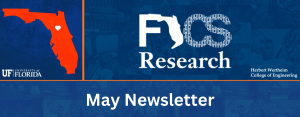
MAJOR NEWS

Dr Kevin Butler, Director of FICS Research, received a distinguished invitation from the White House to engage with the Office of the National Cyber Director (ONCD) at the Florida Sunshine Cyber Conference in Tampa. During this visit, Dr. Butler toured the UF IFAS Center for Applied Artificial Intelligence in Agriculture, a facility renowned for cutting-edge research, extension services, and innovative development initiatives. Throughout the tour, participants engaged in discussions highlighting the crucial intersection between cybersecurity and agriculture.
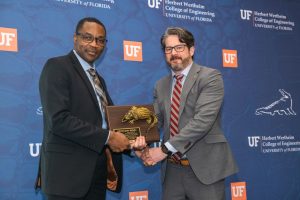
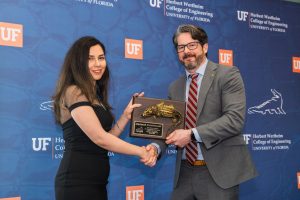

Technology highlights
Can acoustic attacks manipulate underwater critical infrastructures?
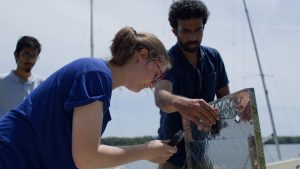
Dr. Sara Rampazzi, director of the CPSec Lab and CISE assistant professor, developed Aquasonic in collaboration with ECE assistant professor Md Jahidul Islam, FICS Director Kevin Butler, and Takeshi Sugawara from the University of Electro-Communications in Japan.
This groundbreaking work, spearheaded by PhD student Jennifer Sheldon and a team of graduate students including Abnan Abdullah, Weidong Zhu, and Hrushikesh Varma, explores the potential of attackers to leverage sound waves to subtly manipulate critical aspects of geo-distributed cloud databases, distributed filesystems, and resource allocation within underwater data centers.
Placing data centers underwater can dramatically reduce their cooling requirements and lead to more sustainable computing. However, they create a new attack surface that adversaries could exploit, especially in wartime. Understanding what emerging cyber threats may arise as these designs are deployed is therefore essential. “It is truly exhilarating to be at the forefront of understanding and defending against potential threats to underwater cloud systems as they emerge in the rapidly evolving technological landscape,” said Jennifer.
The research team devised a sophisticated detection system capable of preemptively identifying acoustic attacks against underwater data centers, mitigating the risk of significant damage. This work will be presented on May 20 at the 2024 IEEE Symposium on Security & Privacy.
Preprint and details at https://cpseclab.github.io/aquasonic/
UF News: https://news.ufl.edu/2024/05/underwater-data-center-security/
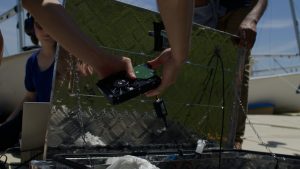

Integrating Large Language Models (LLMs) into System-on-Chip (SoC) security.
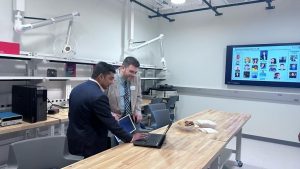
Recognizing the challenges associated with increasingly sophisticated SoC designs, the team, including doctoral students Dipayan Saha and Shams Tarek, has developed a framework that uses LLMs for identifying potential security issues such as hardware trojans, information leakage, and deadlocks. This approach represents a significant advancement in making hardware systems more secure.
A major component of their research involves creating an extensive database of vulnerable RTL designs, showcasing various security vulnerabilities. Generating such a database is a daunting task, traditionally requiring substantial manual effort. However, the use of LLMs can automate and simplify this process, significantly reducing the time and labor involved. The ability of LLMs to understand complex hardware design patterns is critical in this context, not only speeding up database creation but also ensuring its comprehensiveness and relevance.
Dr. Farahmandi shared her thoughts on the progress of their work: “We have developed a technology that we believe can make a substantial difference in detecting hardware vulnerabilities. We have also started working on our own fine-tuned model, tailored for hardware security tasks like vulnerability detection and mitigation. While there is still much to learn and refine, we are excited about the capabilities of this technology and its potential to transform SoC security.”
The team is now focusing on developing their own LLM, specifically designed for tasks such as vulnerability detection, mitigation, and security property generation in hardware security. By advancing these technologies, SiLDA Lab not only contributes valuable insights to the academic community but also enhances the robustness of computing systems against emerging security threats.
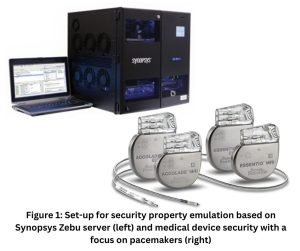
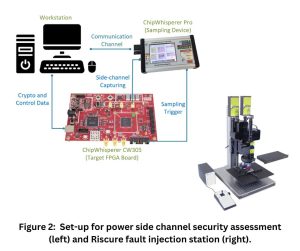
STUDENT SPOTLIGHT
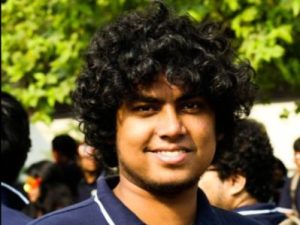

Congratulations to Shams Tarek (top left), Zahin Ibnat (top right) and Nashmin Alam (bottom center picture) for their achievement in winning the IEEE/ACM DAC Young Fellowship under the mentorship of FICS Research Associate Director Dr. Farimah Farahmandi. This fellowship presents them with invaluable opportunities to learn from industry experts, connect with peers who share similar interests, and engage in hands-on labs and career coaching.

Save the Date!

